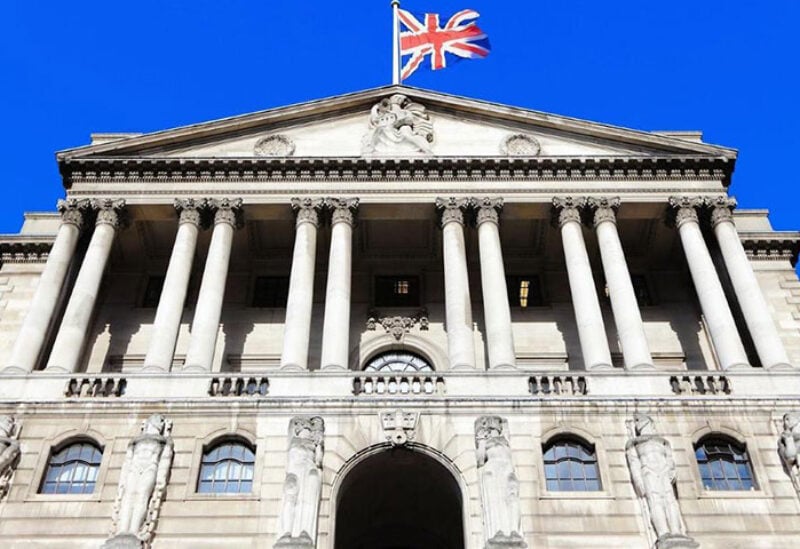
Bank of England
The Bank of England held its main interest rate at the record low of 0.1 per cent on Thursday and stuck with its £895 billion stimulus measures despite fears about rising inflation.
While the Monetary Policy Committee (MPC) voted to keep the central bank’s ultra-loose monetary policy settings in place, there was a shift in tone on the outlook for the economy.
The BoE said developments over the past month have strengthened the case made in August that some tightening of monetary policy could be necessary to meet the central bank’s 2 per cent inflation target sustainably in the medium term.
But the MPC said that “considerable uncertainties remain”, with policymakers led by Governor Andrew Bailey unanimously agreeing that any future tightening should start with an interest-rate increase.
“There was increasing evidence from a range of global and domestic cost and price indicators that inflationary pressures were likely to persist,” the minutes of the MPC meeting said. “These members judged that, with the existing policy stance, inflation was likely to remain above the 2 per cent target in the medium term.”
With supply chain challenges, staff shortages and surging energy prices hampering business activity, Britain’s private sector lost more momentum in September with the IHS Markit/CIPS flash Composite Purchasing Managers’ Index dropping for a fourth consecutive month in September to its lowest reading since February.
Meanwhile, the latest ONS Business insights survey showed that in late August almost one in five businesses were either not able to get the materials, goods or services they needed from within the UK, or were forced to change suppliers or find other alternatives.
Susannah Streeter, senior investment and markets analyst at Hargreaves Lansdown, said given the challenges the UK economy faces at the moment, it is no surprise the BoE opted “for the least worst option which right now is to do nothing, and make no changes to monetary policy”.
“The fact that there was unanimous agreement around the table at the monetary policy committee not to raise rates highlights the conundrum facing policymakers,” Ms Streeter said.
“They have a particularly difficult puzzle to piece together right now because rising prices are now acting as a drag on the economic recovery, which limits their room for immediate manoeuvre on action to curb soaring inflation. In just a month pressures have mounted so much that the bank is now downgrading its forecast of economic growth for the third quarter by 1 per cent.”
Meanwhile, the MPC’s seven-to-two vote to keep the bond-buying target unchanged highlights the committee’s “growing hawkish tilt”, according to Stuart Cole, chief macroeconomist at stockbroker Equiti Capital, which suggests the case for a policy tightening “is growing”.
Mr Cole said the key to any BoE move will be the evolution of the labour market over the next six months and “whether or not the ending of the jobs furlough scheme this month triggers a rise in joblessness and takes additional spending out of the economy”.
Traders brought forward wagers on a BoE rate hike to 0.25 per cent with money markets now seeing a 15-basis-point increase in March 2022, having priced it for May before Thursday’s meeting.
They still see a further quarter of a percentage point rise to 0.5 per cent in November 2022.
While the central bank traditionally shifts its key interest rate by multiples of 25 basis points, it last cut rates by 15 basis points in March 2020, at the height of the coronavirus pandemic. If officials wanted to raise rates, a move back to 0.25 per cent is seen by strategists as the likely first step.
“That doesn’t mean they will be short-lived however. The bank expects inflation to hit 4 per cent this winter and still to be above 3 per cent this time next year, so consumer pockets and cash savings are still going to take a big hit. The bank has also conceded that the gas price crunch has elevated inflationary risks heading into 2022,” Mr Khalaf said.
Early November will be the next tipping point to cause markets to pause for breath, he said, as both the US Federal Reserve and the BoE could set out their tightening plans.
“Fed chairman Jay Powell has indicated that QE tapering could easily begin at the November meeting, and the BoE will finally have employment data to look at that isn’t distorted by the furlough scheme,” Mr Khalaf said.
“Until then, central banks are still playing the same tune, and investors are happy to keep on dancing, with little regard to what happens when the music stops. But if central banks do signal tighter policy at the beginning of November, we can expect some fireworks.”